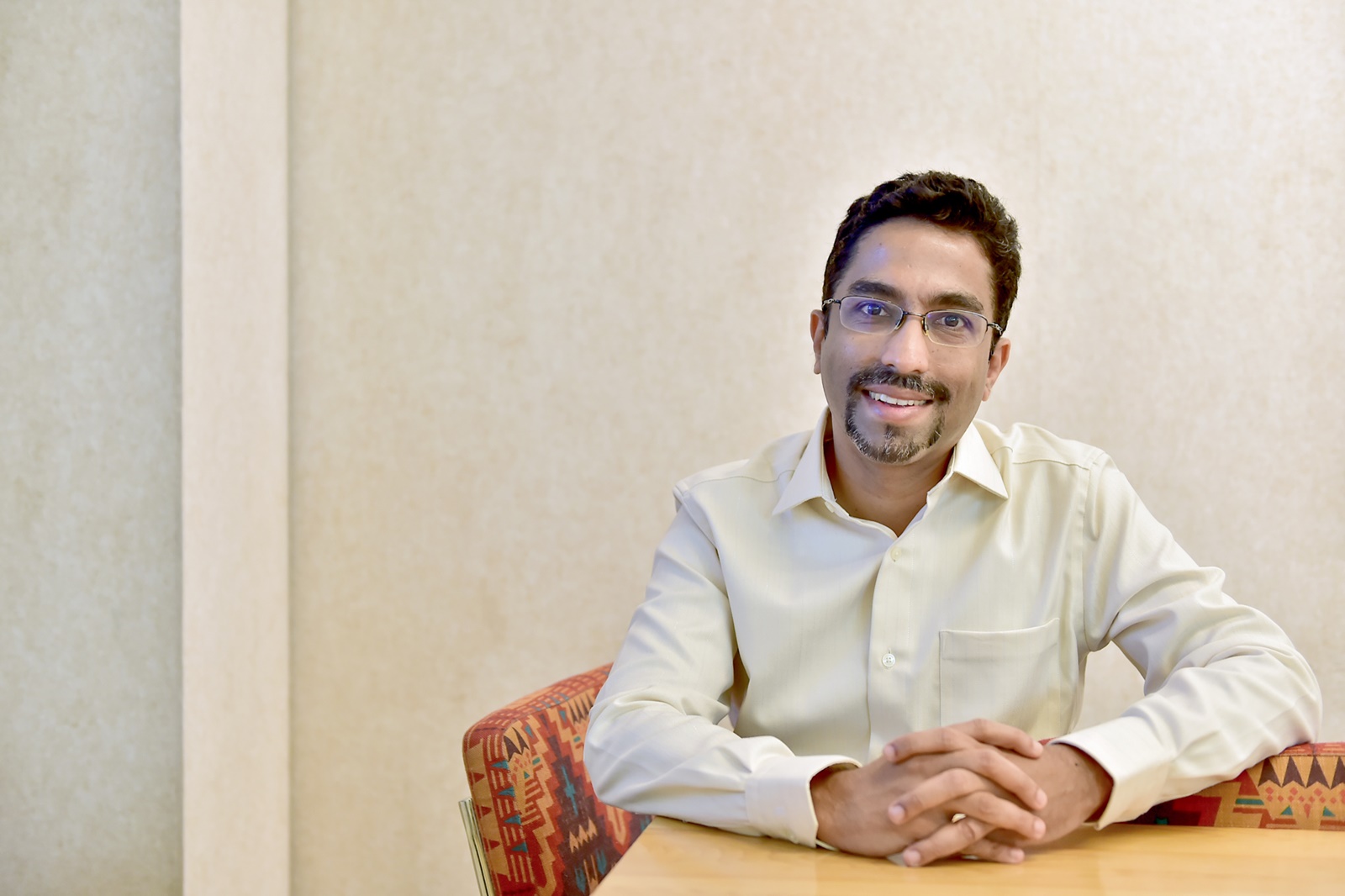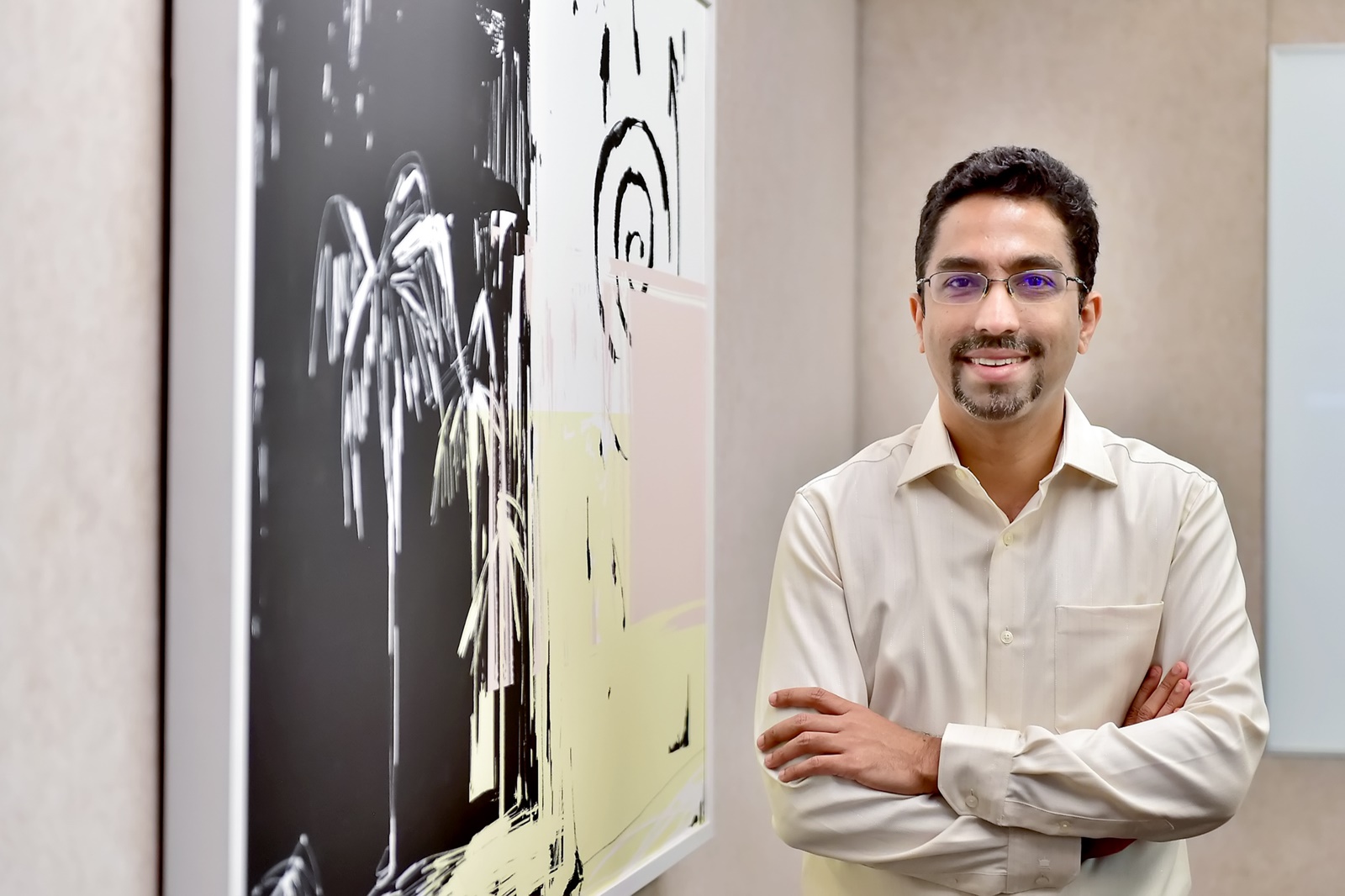Shyam Menon is the co-founder of Bharat Innovation Fund, which focuses on investing in product startups in healthcare, agritech, fintech, mobility, climate tech and logistics sectors.
Bharat Innovation Fund (BIF) is unique in that it is built upon a decade of early investing and startup support experience garnered at Centre for Innovation Incubation and Entrepreneurship – CIIE.CO , an pioneering institution focused on innovation, incubation and entrepreneurship with its roots at IIM Ahmedabad.
With expertise in fundraising and investing, Menon has worked at the Nadathur Holdings, World Bank, Lawrence Berkeley National Laboratory, Conduit Ventures, Fuel Cell Energy and Acumentrics Corp.
An MS from Missouri university of science and technology and a PhD student on Transportation Technology and policy from University of California-Davis, Menon is also an alumni of science and technology innovation leadership program from Oxford. He is also the co-founder of Infuse Ventures, India’s first early stage cleantech venture fund.
Menon spoke to indianexpress.com on Bharat Innovation Fund’s journey, learnings from being an early cleantech investor, the challenges of investing in cleantech and the startups from his fund which have had substantial social impact. Edited excerpts:
Venkatesh Kannaiah: As an early investor in the cleantech space, what has changed between then and now? How do you see the climate tech space maturing?
Shyam Menon: We were the early movers in the cleantech space with the Infuse Ventures fund, and we did all our investments as early as 2013.It was a small fund of Rs 100 crore.
Advertisement
We recognised that investment in cleantech is tough, and though we did seed investments, series A investments were not coming through and the venture capital market was not ready for climate tech or cleantech and there were very few follow-on investments which were forthcoming. The situation now is better than it was in 2014, but capital availability is still low and not anywhere near what it should be. It is not an easy place to be.
Some aspects of climate tech investments are still the nature of infrastructure play, and only a few fits in a VC story. When we were focussed on cleantech, it was mostly around solar, energy efficiency, waste to value, investment in green chemicals and cold chains. Now EV has taken off, but even now it is still in the infrastructure play.
There is a lot of activity in carbon capture, direct air capture and industrial use cases of easy site capture of carbon. This is beginning to make more sense for investors, but perhaps in an Indian context it is the regulatory push in European markets favouring cleantech which will prove to be key, and only then will the economics work.
We also expected the carbon markets to grow much bigger, but that has not happened. Each of the countries go their own way with regard to climate mitigation, but for an Indian context which is a hugely price sensitive market, climate tech will have a role to play only with external regulation pushing them to adopt new tech, or it becoming so cheaper that adoption becomes easy.
Advertisement
 Menon says all of the startups in the Bharat Inclusion Fund have been funded with an eye on impact. (Express photo by Jithendra M)
Menon says all of the startups in the Bharat Inclusion Fund have been funded with an eye on impact. (Express photo by Jithendra M)
Venkatesh Kannaiah: Where and how does the BIF journey begin and what has been your learnings?
Shyam Menon: We are in a way a part of the CIIE innovation continuum. It was a pioneer in many ways. The first fund to come out of it was Infuse Ventures, a fund focused on cleantech.
Many educational institutions now have tech accelerators and incubators, but even now such initiatives are focused entirely on providing support to students or funding alumni projects. It was not the case with CIIE. It always had an external focus and was looking to fund good startups. Around 1,500 startups have been incubated at CIIE and it has provided us with valuable experience. CIIE has a stake in the Bharat Innovation fund.
Infuse Ventures, the Indian Fund for Sustainable Energy, came out in 2012 when there was no angel or seed support for the cleantech system. Now, we have the Bharat Innovation fund, which is a purely commercial fund building and supporting high quality IP companies with a global outlook coming out of India.
Advertisement
We also have the Bharat Inclusion seed fund which is a separate fund, supported by various corporate foundations, and eight impact startups have been funded. It is focused on inclusion with the thesis of leveraging the India Stack not only in fintech but also in issues like upskilling. Inclusion is the driver and India Stack is the base. The idea was to show entrepreneurs the potential of India Stack. Apart from equity, we also give grants to startups and initiatives which have not reached the fundable stage.
Venkatesh Kannaiah: Can you talk about startups in the Bharat Inclusion Fund which are likely to create a social impact using tech?
Shyam Menon: All of the startups in the inclusion fund have been funded with an eye on impact.
Kaleidofin is one such startup targeting rural, tier 4 and tier 5 cities customers. It is into microsavings and micro credit built on India Stack. It also has built a ki score, a credit rating for people who do not have a credit score.More than 4-5 million such credit scores have been generated. This has led to more than USD 2 billion of lending based on ki score rating alone. The machine learning models to assess credit scores have been trained on data of more than 26 million unique customers. They also use alternate data to elevate the credit risk model.
Advertisement
Mymobiforce is another startup scaling fast. It is an online gig worker platform for tech workers, not for software workers but for technicians to build and manage telecom towers or to service washing machines across India. It is a huge challenge in India to find trained technicians. The platform finds them, trains them, certifies them and makes them available for the corporates. Recruitment is done in bulk here, and almost two lakh people have found jobs using this platform.
Virohan is another startup which is a blending learning platform for allied health services, like radiology technicians or dental assistants. It works with the facilities of existing universities to provide upskilling courses for these students. Every student goes through in-hospital training, and the placement rate is around 98 per cent.
Bandhoo is an online platform making life simpler for builders, contractors, material suppliers, architects, and construction workers. India has millions of construction workers doing short gigs and many sectors like real estate and factory construction use them. More than 30 per cent of these are migrant workers and the online platform seeks to make this labour market transparent and efficient, helping contractors and workers find each other.
Venkatesh Kannaiah: Can you talk about your startups in the Bharat Innovation Fund which have created substantial social impact?
Advertisement
Shyam Menon: Nayam Innovations is an IP-driven, medical device startup to fight blindness. They are working on a novel tech platform that would allow patients and surgeons to personalise intraocular lenses to enable spectacle-free vision. This tech has brought down the prices of these lenses down to a third of what is available in the market, it also brings down the cost of cataract surgery substantially.
Zumutor Biologics is an immuno-oncology company in the space of targeted cell therapeutics to fight prostate and breast cancer. The animal trials have been completed and they have also received US food and drug administration approval for human trials. This is a gamechanger.
Credit Vidya is one of our fintech startups and provides credit scores for the unorganised workforce and enables bankers to provide loans based on such scores at a very short period of time. It is a very data science focussed team, monitoring thousands of alternate data points. An app will analyse all your information and will score on whether you are worth lending to. It also looks at the saving and spending patterns and decides on whether they are likely to repay the loan. The data is crunched within a minute or two and the bankers can provide the loan immediately.
One of the startups in our portfolio is Algorithmic Biologics which is into smarter molecular testing and, with the use of AI, has made image-based diagnostics accessible, affordable and accurate. If one needs to do 10 million tests, to find a virus strain, we can now do it with much smaller samples. The impact is huge.
Advertisement
Venkatesh Kannaiah: How have the cleantech startups in your Infuse Ventures portfolio been performing?
Shyam Menon: We are almost done with most of our investments in Infuse Ventures, and two of them have created substantial impact. First is Fourth Partner Energy, now a leader in industrial and commercial rooftop solar, in which we were an early investor. It is nearing a billion dollars in valuation. Another of our early ventures is Proklean, the first green chemical company from India, which serves the leather, paper and pulp and chemical industries. Proklean uses probiotic microorganisms along with other renewable raw materials to make biodegradable products.
 “…in India, we have to make it viable for companies to capture carbon at source,” Menon says. (Express photo by Jithendra M)
“…in India, we have to make it viable for companies to capture carbon at source,” Menon says. (Express photo by Jithendra M)
Venkatesh Kannaiah: Can you tell us about one of your investments which you think will provide an outsized social impact?
Shyam Menon: Zumutor Biologics is one company which will have an impact at a global scale. End of the day, it is a cancer drug. It would also be among the first immuno-oncology companies from India, and if it clears phase 3 trials and becomes a drug, it would be one of our most significant impact investments. It is showing great promise for now, but you must understand that it is cancer, and it is long term, hence difficult to predict.
Advertisement
Venkatesh Kannaiah: Your thoughts on climate mitigation tech, and areas which will have a substantial impact and of interest to investors?
Shyam Menon: There is enormous traction in electric vehicles. Carbon capture at source on a large scale is a solution, but who is going to pay for it? If we are going to look for regulatory mechanisms to enforce the same, it means that we are going to make the consumer pay. We need a clear economic model. I also see that a lot of alternative tech for generating cement is being discussed. It could be transformative. For example, there is a company in the US called Sublime Systems which is commercialising a breakthrough process to make low-carbon cement. But for now in India, we have to make it viable for companies to capture carbon at source. Climate tech is coming up with interesting solutions, but the key is unless we solve the economic question of who is going to pay for it, it will take time to take off.























